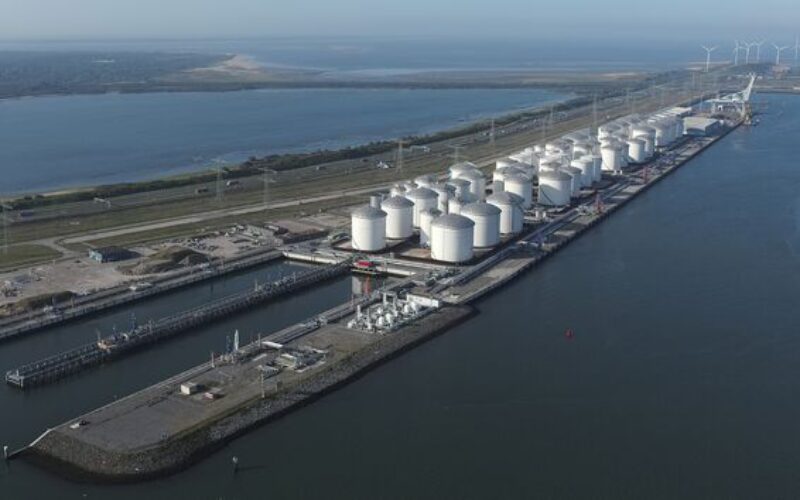Impala Terminals Group, a global infrastructure and logistics company, has agreed to purchase the Port Authority of Rotterdam‘s tank terminal, HES Hartel, following an auction process.
The HES Hartel Tank Terminal, which will be renamed ‘Impala Energy Infrastructure Netherlands,’ has 1.3 million cubic metres of bulk liquid energy product storage capacity.
Once operational, the terminal is expected to provide up to 70 full-time local employment. It will include over 50 tanks, berths capable of loading VLCC-sized vessels, and nine barge jetties.
According to the Port of Rotterdam, the terminal’s high-grade standards and connections will allow maximum flexibility to users.
READ: Gasunie, Vopak commence construction of fourth LNG tank at Port of Rotterdam
The Port of Rotterdam stated that the terminal has the potential to store a variety of biofuel goods, which will aid in the region’s energy transformation.
Following a variety of setbacks, including the COVID-19 pandemic, various delays, and higher expenses, construction of this fresh new storage and distribution port was halted in December 2022.
HES Hartel Tank Terminal B.V., the project’s owner, declared insolvency in January of this year, prompting an auction procedure.
READ: Port of Rotterdam starts building national hydrogen network
Sjoerd Bazen, CEO of Impala Energy Infrastructure, stated: “This is an excellent development for Impala, particularly as it will provide our strategic customers with a strong and sustainable asset located in the Port of Rotterdam in the major trading hub of Amsterdam-Rotterdam-Antwerp.
“We look forward to developing our business in the region in collaboration with different stakeholders and specifically the Port of Rotterdam Authority.”
Boudewijn Siemons, Interim CEO and COO of the Port of Rotterdam Authority, said: “We are pleased that Impala has purchased the terminal asset and that construction work will be completed.
“With this transaction, the company is making a lasting commitment to the port and is adding a brand-new facility for storing a wide range of bulk liquid energy products. This provides a new future for the terminal after a bankruptcy that has been difficult for all parties concerned, particularly the employees.”








